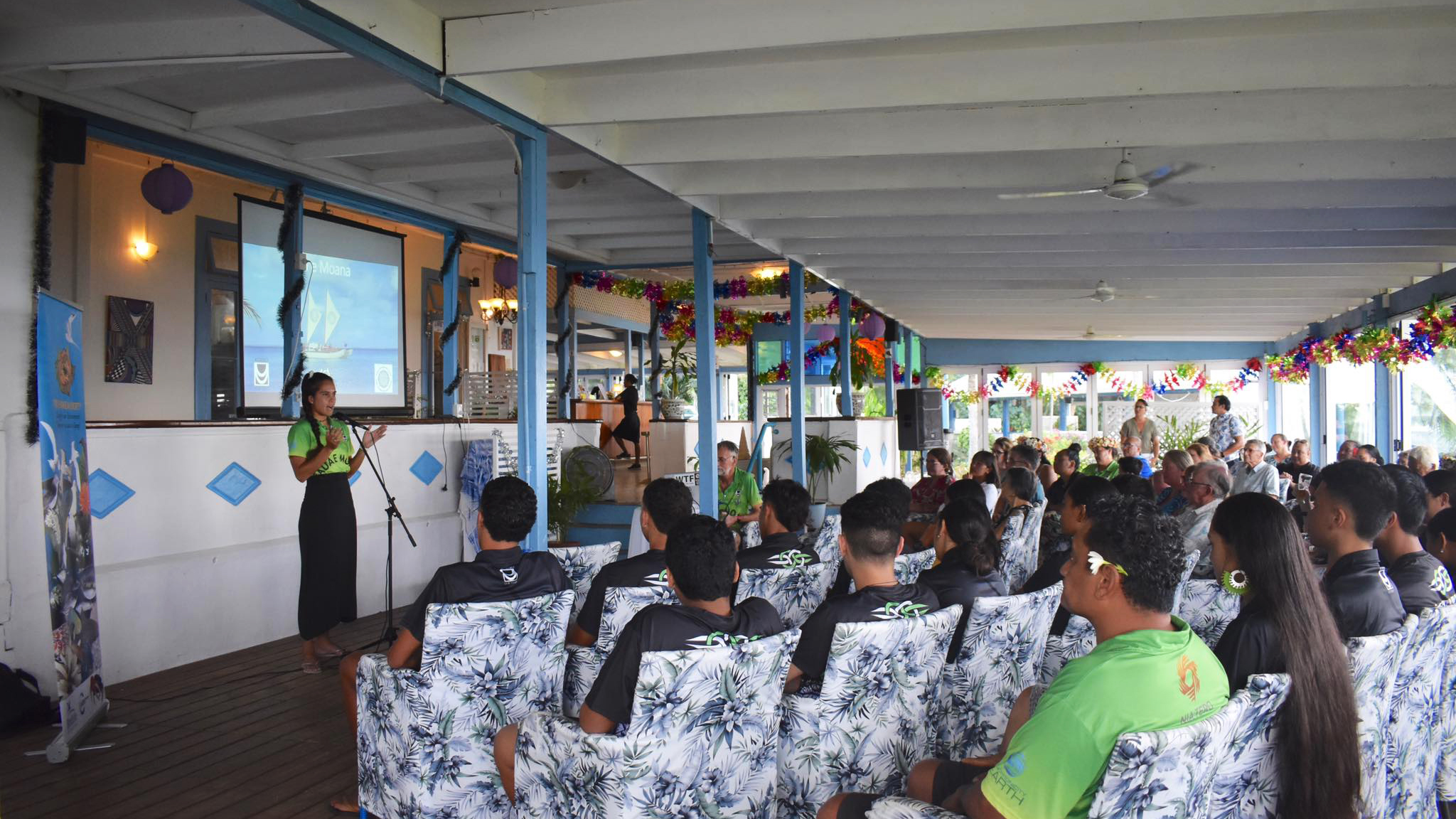Becoming an Ocean Champion: Tāua e Moana Ocean & I
Saturday 11 December 2021 | Written by Te Ipukarea Society | Published in Environment, Features

Te Ipukarea Society’s Alanna Smith makes a presentation. TIS/21121010
Thursday night was Rarotonga’s turn to hear some of the ocean health presentations that were presented to the whole of the pa enua by the voyagers from Tāua e Moana – Ocean & I, writes Te Ipukarea Society.
Three local NGOs, Te Ipukarea Society, Kōrero o te ‘Ōrau and Cook Islands Voyaging Society, all came together at Tamarind House to share experiences from the voyages.
A range of marine related issues were discussed including industrial fisheries, microplastics found in the ocean and the imminent start to deep sea mining exploration. Climate change impacts on the ocean was a widely shared concern, from its impacts on invasive species such as taramea (crown of thorns), coral bleaching, plus weather patterns and changes to water temperatures influencing tuna fisheries migration patterns.
The critical role that the ocean plays in regulating climate and absorbing man made carbon is just one of the many reasons why rushing into deep sea mining is not right for the Cook Islands or the planet at this time.
Our ocean is already under a lot of pressure from climate change, pollution and overfishing. Deep Sea Mining would only add stress to an already stressed out ocean.
One member from the audience asked an important question about what individuals can do to help share knowledge on the impacts of deep sea mining. This excellent question opened up some interesting discussion on this important issue facing our nation, and how some people feel like their opinions are not being heard by government and that it falls on deaf ears.
The deep sea mining debate has divided the community and some people feel disheartened, while others feel empowered to do something, but may not know how to make a difference.
Some advice that was given was, firstly, to not underestimate the importance of chatting to your family, friends, colleagues and using your own platforms including social media to open up discussion on deep sea mining.
Secondly, make your voice heard in the legal processes. Making a submission is one of the most effective means of having your voice heard. Submissions may be on licensing applications, legislation, regulations or on Environmental Impact Assessments (EIAs). While the formality of the process may seem daunting, please know that your local environmental NGOs will always be willing to advise and support you in this process.
Thirdly, demand more from your politicians. Elections are coming up, so use this opportunity to advise politicians of your opinions and hold them accountable. If you do not want them supporting deep sea mining, tell them. Most politicians want the job for life! If they are not acting in the way you wish, and make promises they do not keep, vote them out at the next election. Though you may then have to trim your own hedges and trees!
Finally, consider joining up, volunteering and getting involved with your local environmental NGO communities. Our people are our greatest resource and building the capacity of our people is one of the most effective ways of generating true change.
As Dr Teina Rongo summed up on the evening, one of the major successes of Tāua e Moana, was the experience for the voyagers themselves. By really connecting with the ocean through the vaka, the experience ignited those voyager’s relationship with the ocean and helped develop and inspire true ocean champions who will continue to advocate messages of ocean health.














































